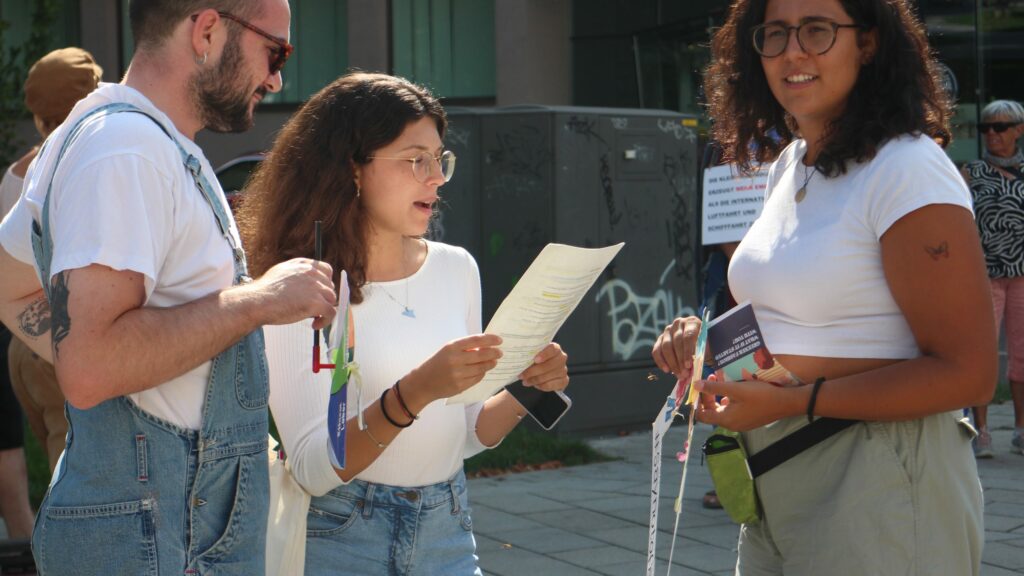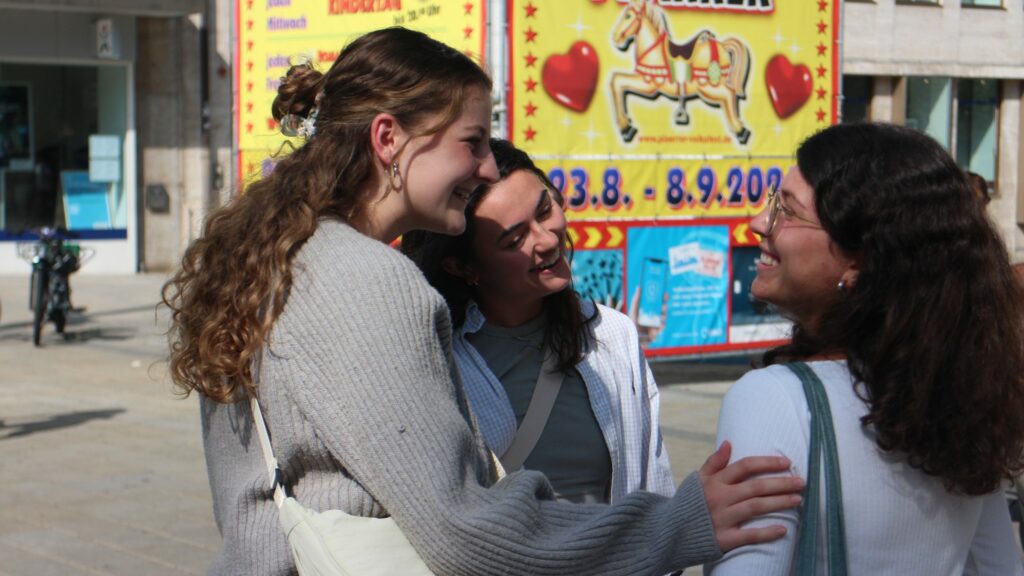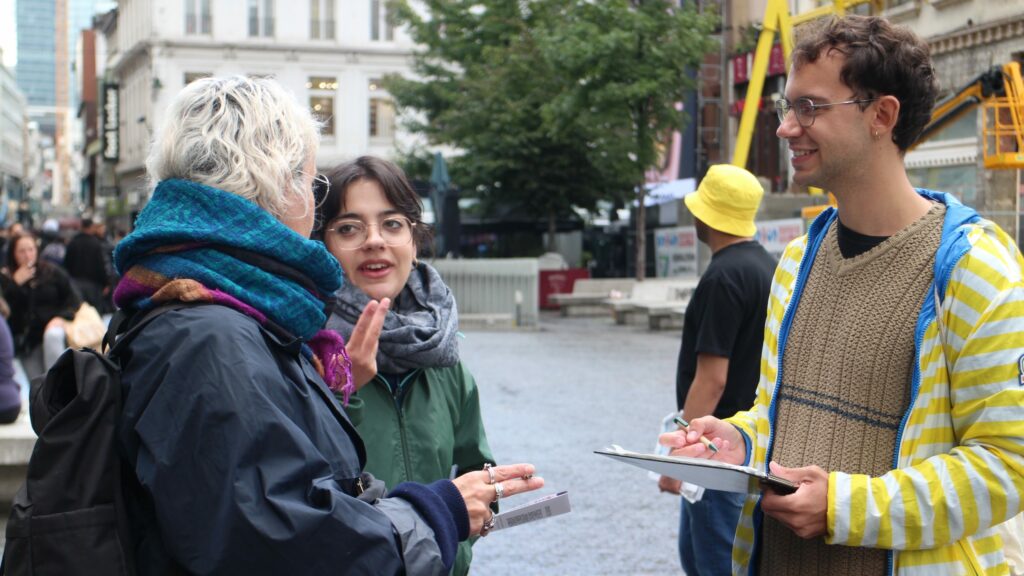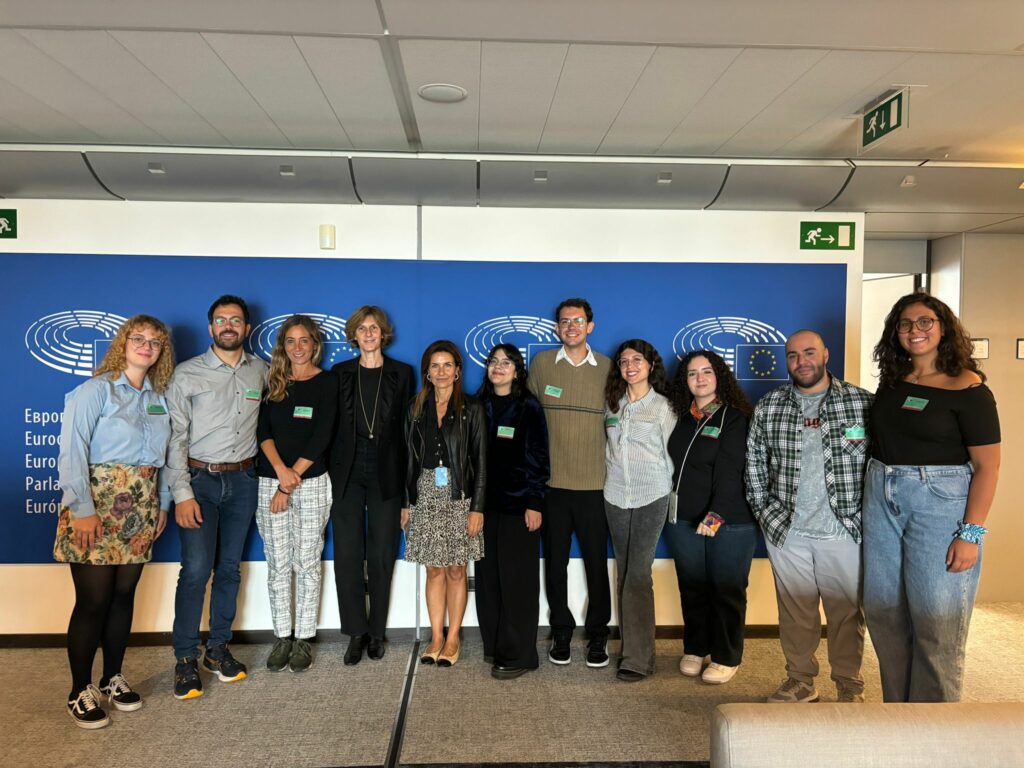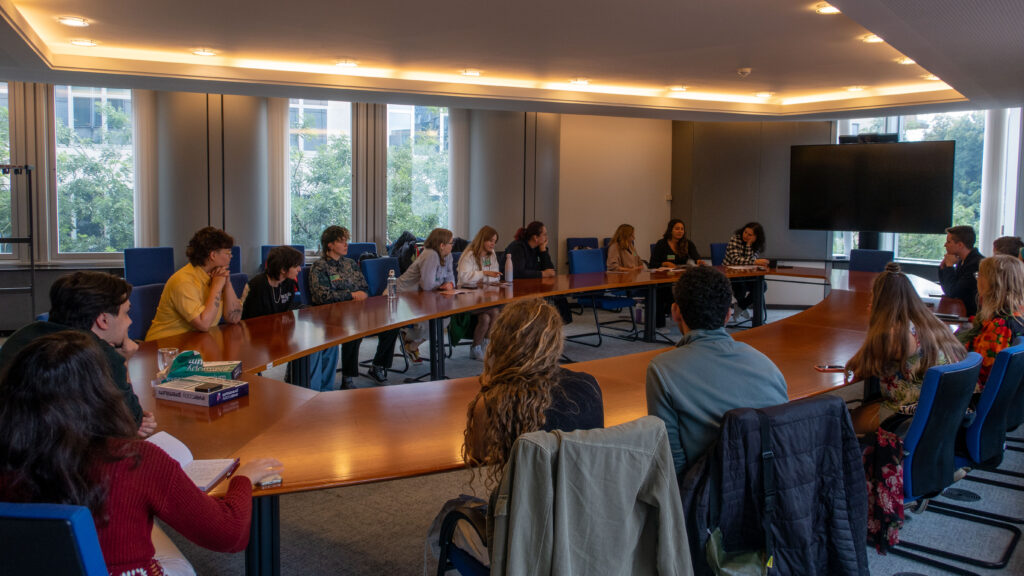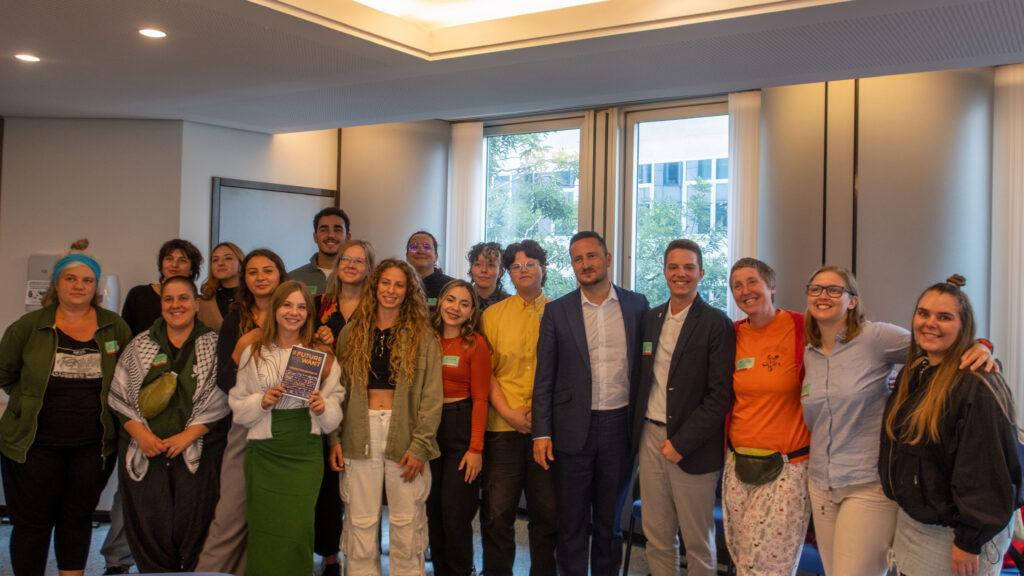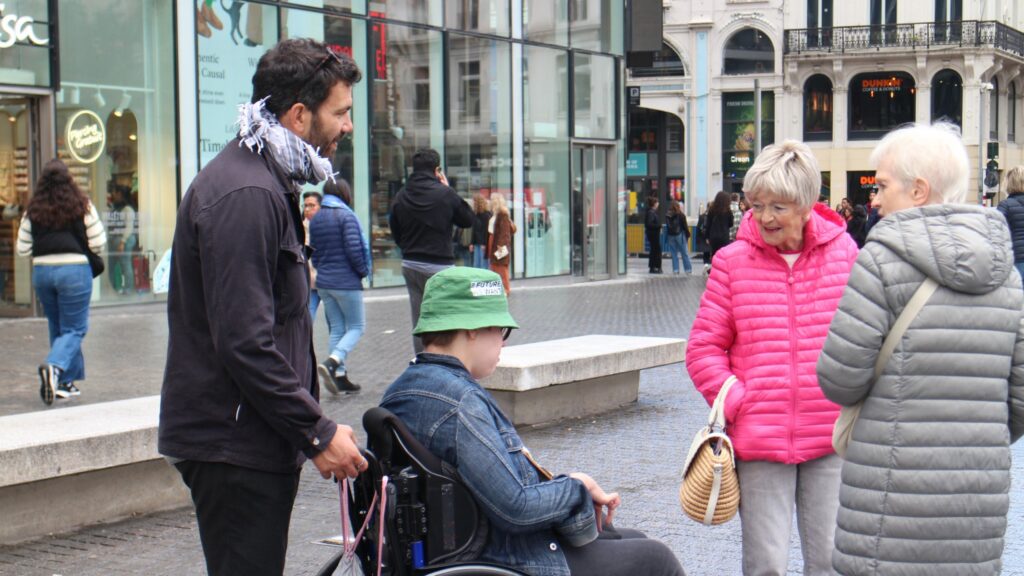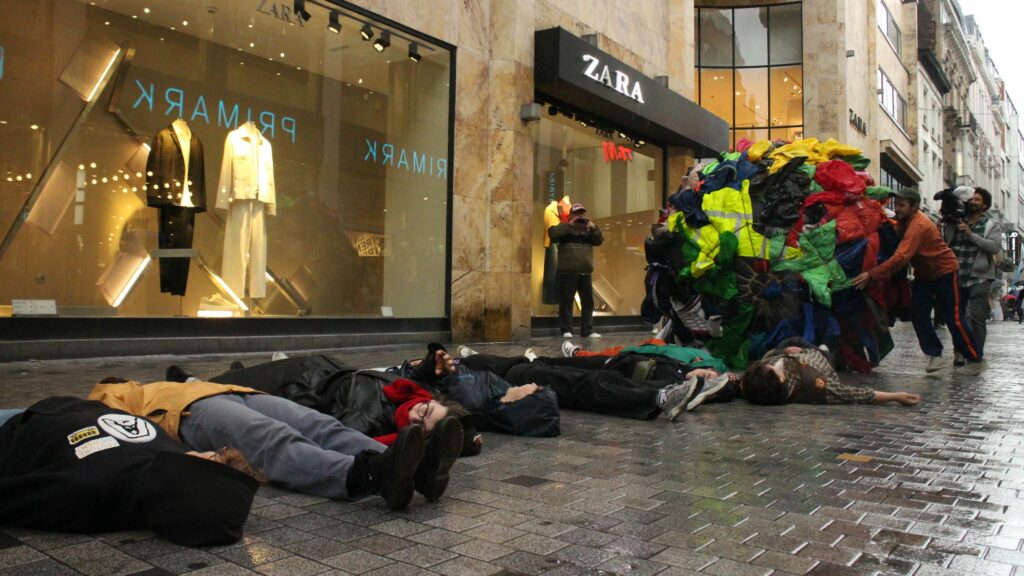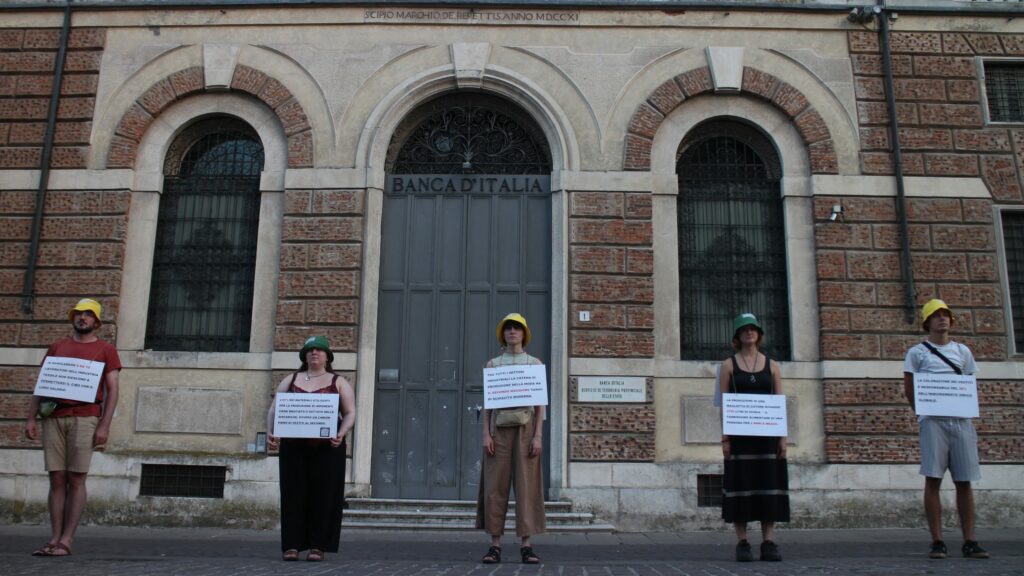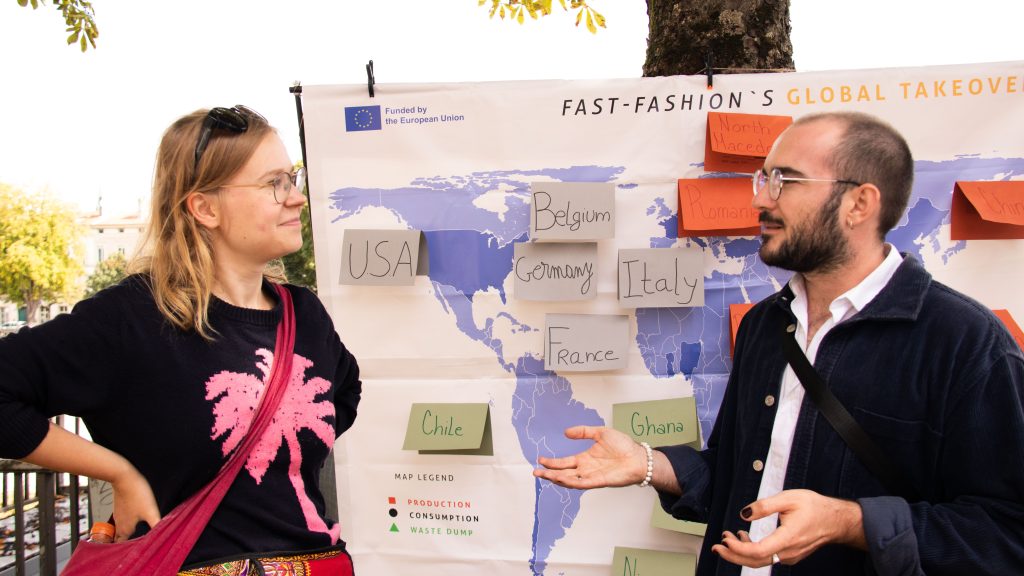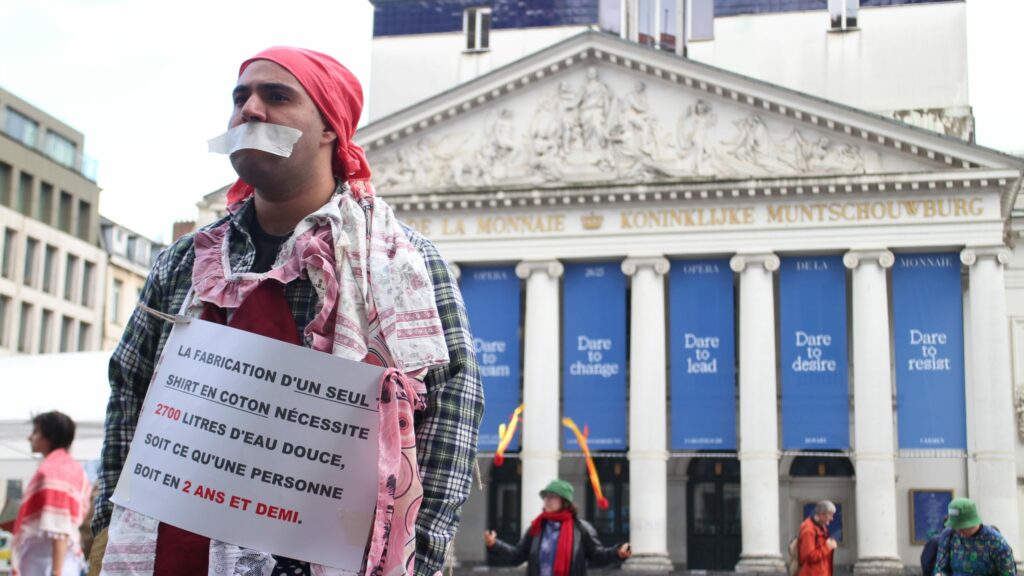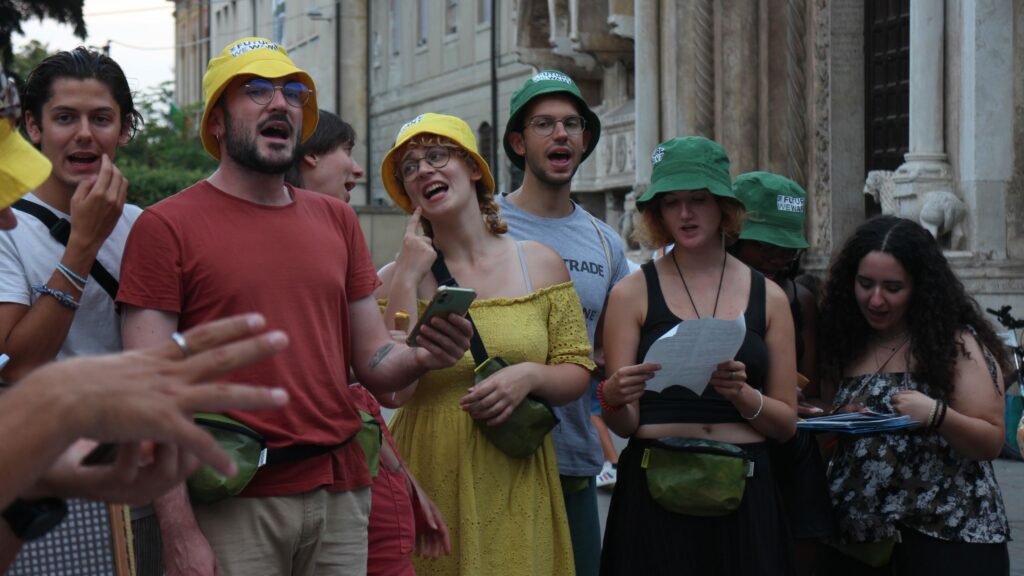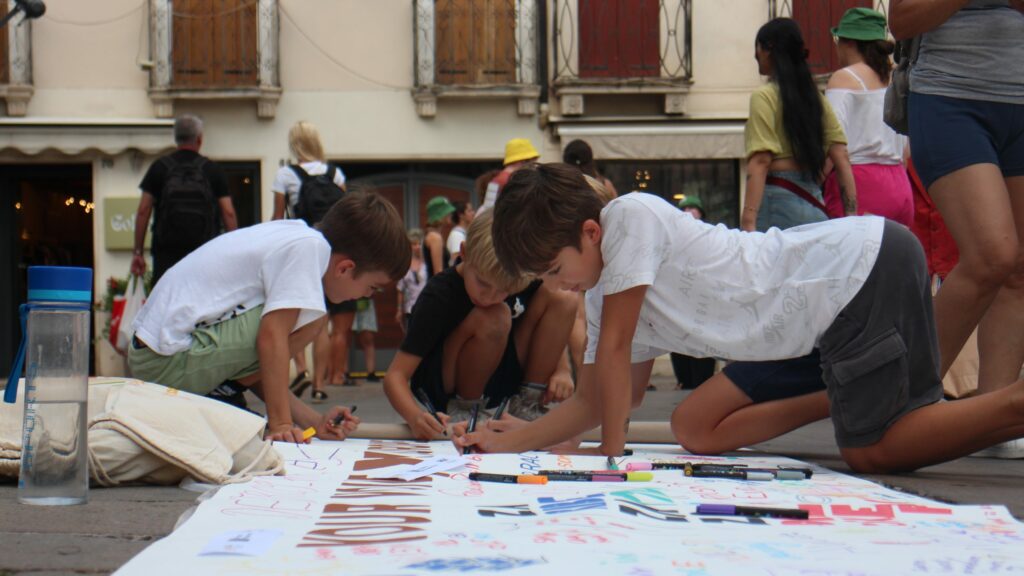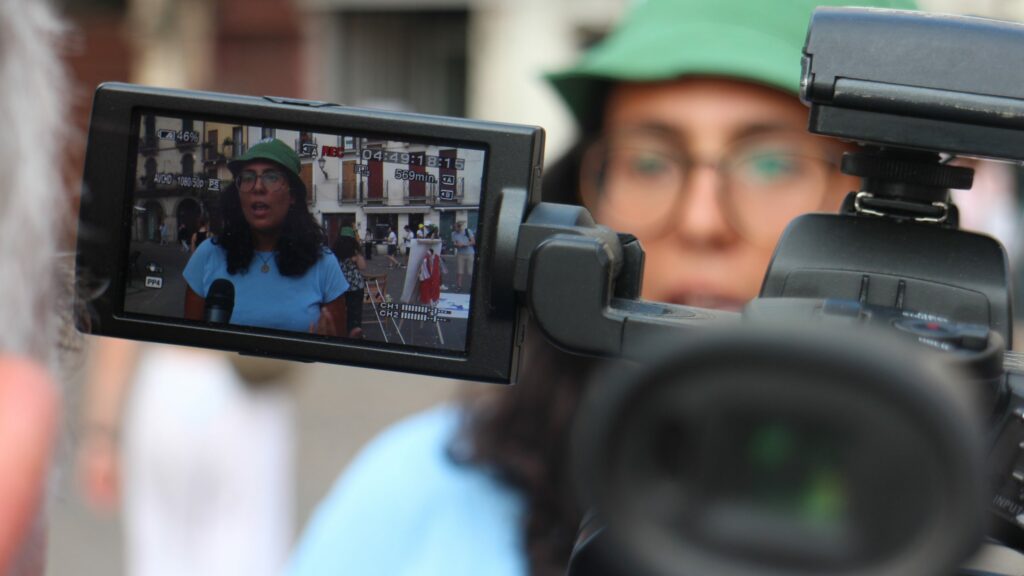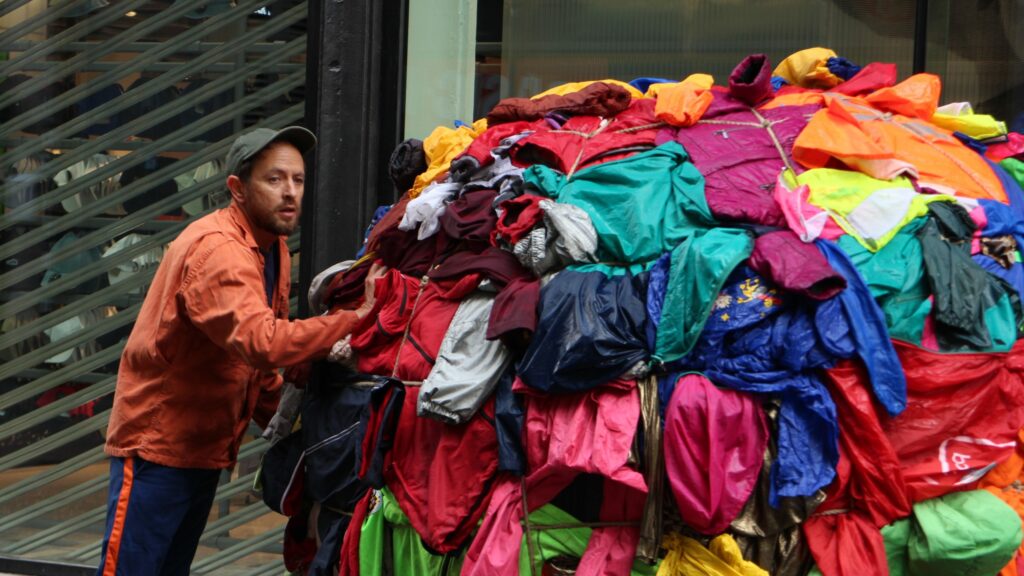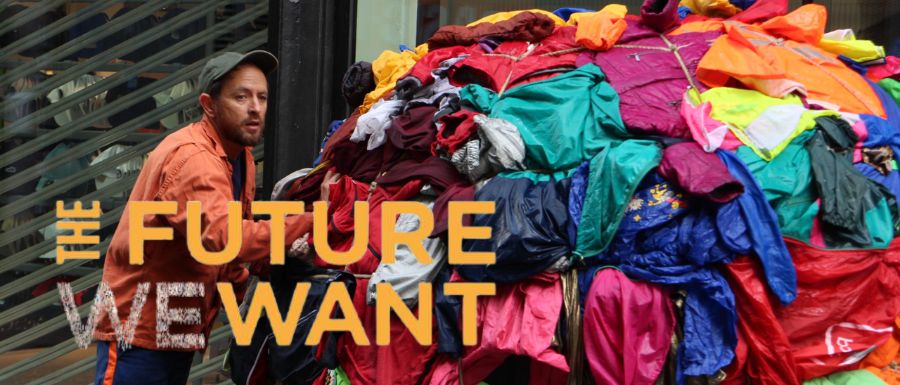After traveling through 17 cities across 7 countries, raising awareness about the environmental and social harm caused by fast fashion, the 50 participants of the “The Future We Want“ Transnational Caravan completed their impactful journey on September 16, 2024, in Brussels, Belgium.
Empowering Youth for a Sustainable Future
Funded by the EU Commission, this project brought together partners from diverse organisations, including A.R.T. Fusion, Eclosio, Metaphora Theatre, One World Network NRW, The Finnish Peace Committee, CReA Onlus, BalkanIDEA Novi Sad, and SLOGA – Slovenian Global Action. The project aimed to:
- Train and empower 50 young people to advocate for action on the SDGs.
- Build the capacities of 9 partner organisations in advocacy and campaigning.
- Engage 30,000 young people across Europe in sustainability and the SDGs through online and street campaigns.
Journey of Impact
Two buses embarked from Naples (Italy) and Bucharest (Romania), joining forces in Ljubljana (Slovenia) before heading to Brussels, where participants called upon Members of the European Parliament (MEPs) to support their demands for a sustainable future. Along the way, participants engaged thousands through street activities like sewing workshops, interactive quizzes, and theatre performances. By combining art, education, and activism, they successfully connected with citizens and decision-makers alike.
Advocacy and Action in Brussels
The Future We Want team produced key advocacy materials, including:
- An open letter urging MEPs and EU institutions to take immediate action on fast fashion.
- A policy brief highlighting the environmental impacts of fast fashion and recommending sustainable solutions.
- A petition to ban fast fashion advertising across Europe: you still have the time to sign!
- A youth manifesto detailing a vision for a more sustainable future, crafted by young activists from all over Europe.
These documents were presented to MEPs, culminating in engaging discussions with Italian, French, Romanian, and Belgian MEPs, as well as representatives of the EU Commission.
Political Engagement and Key Meetings
The caravan made a significant political impact, with local policymakers and European leaders supporting their cause. Highlights from the Brussels event include:
- Italian MEPs Camilla Laureti and Alessandra Moretti. The focus of the discussion was on the Eco Design initiative and the introduction of the “green passport”, which is expected to be fully operational by 2027. They expressed an interest in considering the group’s proposals, as many of the points raised were already reflected in their ongoing work. Both MEPs emphasised the importance of promoting responsible consumer behaviour. Mrs. Laureti highlighted the critical role that movements like “Fridays for Future” played in making the European Green Deal possible, stressing the need for continued youth activism to mobilise support and drive meaningful change.
- French MEP Majdouline Sbaï engaging with participants on fast fashion’s environmental and social costs, pledging future collaboration. Mrs. Sbaï represents an important voice in the ongoing debate on sustainability in Europe. During the meeting, she shared her insights on the environmental and social impacts of the fast fashion industry. She signed the petition and expressed her willingness to cooperate in the future, especially in view of the negotiations for the Directive on Green Claims.
- Romanian MEP Nicolae Ștefănuță. The team introduced their project providing him with an overview of their work, including details about the project’s outreach efforts both online and offline. After hearing their policy proposals, Mr. Ștefănuță expressed strong support for their initiative, signing the open letter and petition to demonstrate his commitment. He even shared these materials within his network, as he had done previously. His team, comprising young individuals, offered valuable feedback and suggestions for future actions. They look forward to staying engaged with the project and collaborating on the next steps.
- Belgian MEPs Estelle Ceulemans showed great enthusiasm for the project and the group’s dedication to these issues, praising the efforts of young people in driving the conversation around sustainable policy. Mrs. Ceulemans remained engaged and curious, she provided insights into the parliamentary process, particularly the challenges of pushing for legislation, such as including a provision to ban fossil fuel advertisements, which she acknowledged could be difficult despite her possible role in trilogue negotiations for Parliament.
- Additionally, there has been a discussion with Belgian MEP Saskia Bricmont and Deputy Sarah Schiltz who strongly supported the cause of the project. With their experience, they provided valuable guidance on tactics, key contacts, and next steps to take in the weeks following the meeting. They emphasised the importance of perseverance in their challenging but important fight. Mrs. Bricmont also committed to sharing the details of their discussion with her colleagues and keeping us updated on any progress. Furthermore, she expressed her willingness to facilitate future meetings with other parliamentarians when the opportunity arises.
The meeting with representatives from the European Commission marked the highest moment of the project for the group. It provided a valuable opportunity to present their project in detail, offering deep insights into the organisation of the campaign, the recruitment of participants, and the overall journey. The team also shared personal stories from the caravan, underscoring how the project’s success had surpassed their initial expectations. With a clear outline of the campaign’s impact, they engaged in a forward-looking discussion on potential next steps, with a focus on the upcoming project evaluation meeting in December. Those meetings will be critical in determining future actions and in shaping public policies, especially those targeting fast fashion and sustainability.
The journey concluded in Brussels with significant commitments from MEPs and EU officials, confirming that their efforts had resonated at the highest levels.
The Future We Want project has not only ignited conversations about sustainable fashion but has empowered a generation of young activists to drive change. As the journey ends, the foundation is set for continued collaboration with policymakers, pushing for real solutions to fast fashion’s environmental and social challenges.
